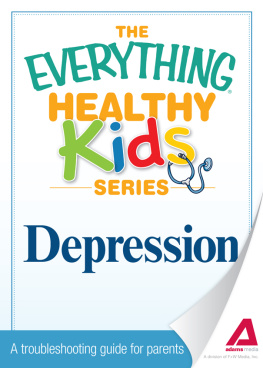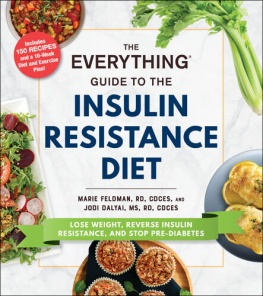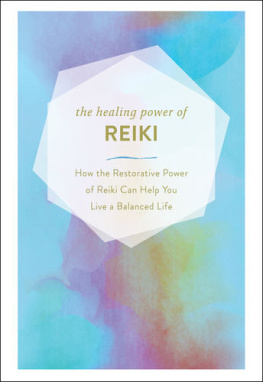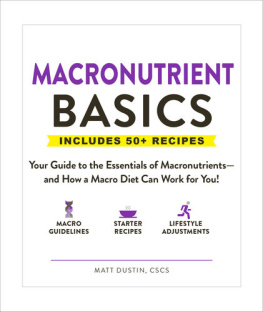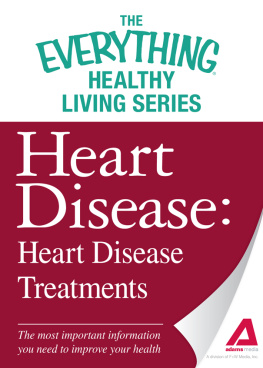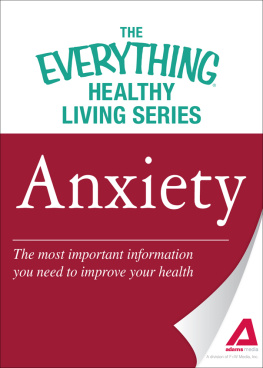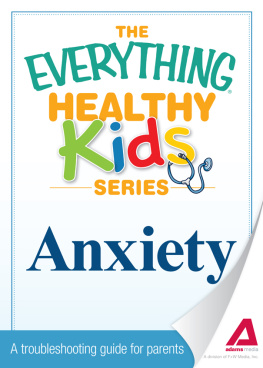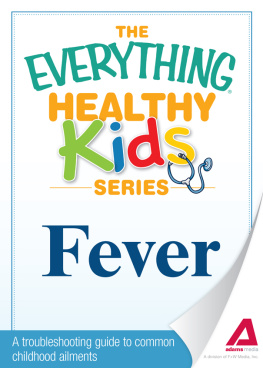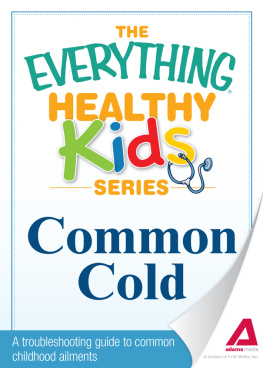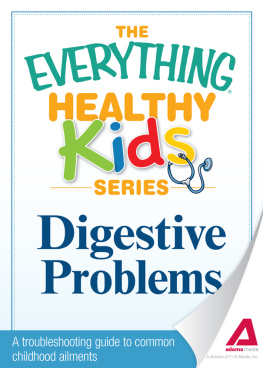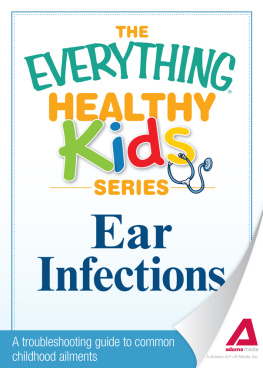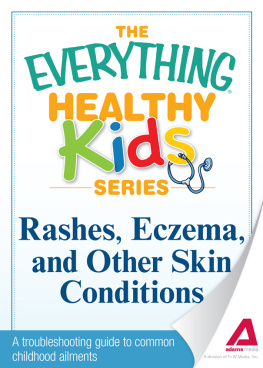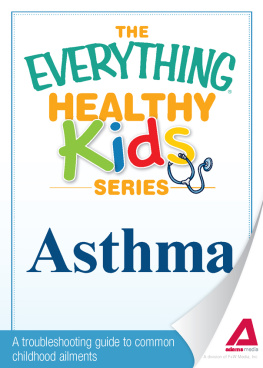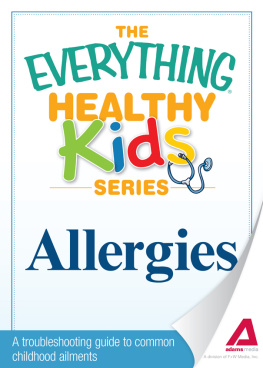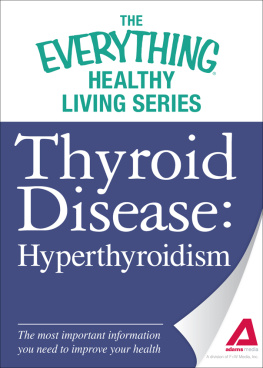Adams Media, a division of F+W Media, Inc.
For more than 10 years, millions of readers have trusted the bestselling Everything series for expert advice and important information on parenting and health topics ranging from pregnancy and postpartum care to asthma, dyslexia, and juvenile diabetes. Packed with the most recent, up-to-date data, Everything guides help you get the right diagnosis, choose the best doctor, and find the treatment options that work for your child.
The Everything Healthy Kids Series books are concise guides, focusing on only the essential information you need. Whether youre looking for information on how to treat ailments in children from infants to teenagers, advice on raising happy, well-adjusted kids, or suggestions for how to get your child to eat the right foods, theres an Everything Healthy Kids Book for you.
Depression
Most people have felt sad, blue, and generally unmotivated at some point in their life. When asked what was wrong, inevitably theyd say, Im depressed, or My life is so depressing, or Ive had the most depressing week. The way in which they dealt with those emotions varied depending on the circumstances. Some laid in bed watching movies, waiting for the depression to go away. Others ate or drank their way through it. Still others got busy, thinking if they could just get their mind off of their depression, theyd be fine. Eventually, the depression would lift and things would go back to normal.
That wasnt depression; that was the blues, a few days of feeling yucky and a few days spent medicating ones self in the best way you knew possible. The word depression has been bantered about so much that it has lost its meaning in most contexts. It is now used to describe anything that feels unpleasant.
Real depression is devastating. It feels as if it is going to last forever, and it rarely just goes away. Those who have been through it will tell you that its a long, slow road to recovery. Only through the identification of it as an illness and its subsequent treatment can most people overcome it.
According to the World Health Organization, by the year 2020, depression will rank second as the cause of a loss of healthy years in ones life (number one is heart disease). While most parents do not want to think its true, the prevalence of depression among children is growing at an alarming rate. Unfortunately, most research is focused on the treatment rather than the prevention of depression.
How can the amount of people suffering from depression be reduced? It seems obvious that you would start with your children. While much depression is hereditary and related to problems with brain chemistry, a child who has had a parent with depression is not necessarily destined to become depressed. Depression can be prevented in many cases.
There are myriad things you can do to help prevent your children from becoming depressed or to treat those who are already suffering. It is a teaching process, and it involves much hands-on parenting. No one expects parents to know intrinsically how to do this, but it can be learned and passed on to your children.
Since depression prevention programs are still few and far between, you, as the parent, must become the first major team player in the prevention and treatment of your childs depression. Part of your work requires that you become as educated as possible about the causes, risk factors, and chemical factors that can cause depression. Youll also need to acquire healthy parenting skills that will prepare your child to become resilient, self-reliant, and emotionally flexible. These are the skills that your child will need to not only beat depression but also to have a successful, happy life.
If youd like to learn more about depression, check out The Everything Parents Guide to Children with Depression , available in print (978-1-59869-264-8) and eBook (978-1-60550-261-8) formats.
Getting a Handle on Childhood Depression
To think that your child is depressed is a scary prospect. Sometimes it seems that the more you read and research about depression, the more daunting and overwhelming it becomes. Yet knowledge is power, and when it comes to mental illness, it is better to know too much than not enough. By getting a thorough understanding about childhood depression, you will be prepared to make the best decisions designed to meet your childs individual needs.
Do Kids Really Get Depressed?
Even though people prefer to think of childhood as a happy time, free from worry and stress, it is not always the case. As life has become increasingly more complex, children are faced with more challenges than ever before. If adults are having trouble navigating their worlds and all of the problems that naturally occur, imagine what it must be like for children! Popular thought used to be that children didnt suffer from such complex disorders and thus labeling a child with depression merely provided an excuse for the behavior being exhibited.
Adolescence
As for adolescence, it is a period filled with hormones, rebellion, and moodiness. How easy it is to dismiss an adolescents latest phase as just being a teenager! One mother used to call it the uglies whenever her daughter flew into a crying rage. She readily admitted that she secretly believed the child was behaving like that in order to get attention. It wasnt until a teacher mentioned the possibility of depression that she looked a little more closely at her daughter. While teenagers can make you feel utterly helpless and hopeless, some of the behaviors they exhibit might actually be the result of depression. You wouldnt be the first to miss the signals, and you most certainly wont be the last.
Just as you are forced to keep up with the latest trends in music, dating, resources, and schools, you have to keep up with what is seemingly normal for your child. It becomes easy to compare children, but lets face it, there are no two alike. That is why communication becomes key in order to stay hip and to recognize if anythings out of character with your child.
Essential
In order to recognize and address depression quickly, its crucial to have an open dialogue with your child. Resist the urge to do all the talking. A child will talk more freely in a relaxed atmosphere. Listening and being observant during this time will teach you more than you realize!
Staying hip does not mean you must act like an adolescent yourself. What matters is that you realize what is important in your teens particular world and how these trends and situations are affecting him.
Is It Depression?
Kids do get depressed. Some are mildly depressed, which, if that is the case, will probably go away on its own. Others get seriously depressed so quickly that it incapacitates them before anyone realizes theres a problem. Maintaining a balance between worrying too little and too much is hard to do. However, just because children get depressed does not mean they always know how to tell you. In fact, they are superb at pretending everything is fine. But deep down, they look to you for guidance and help. They need you to understand that something is not quite right and that how they feel needs to be taken seriously.
Alert

